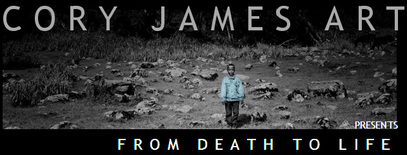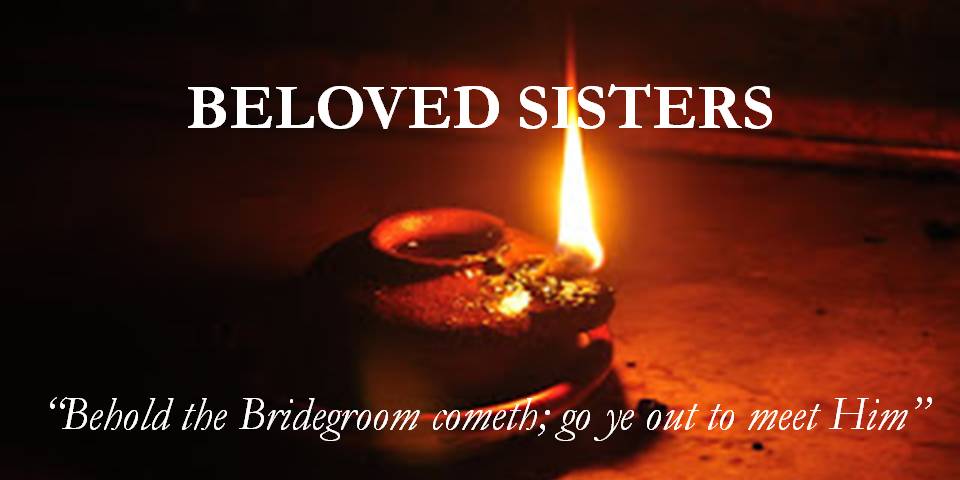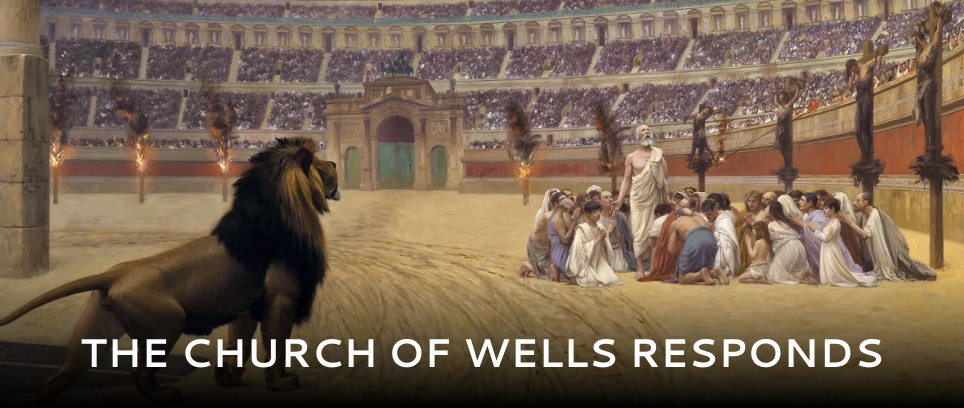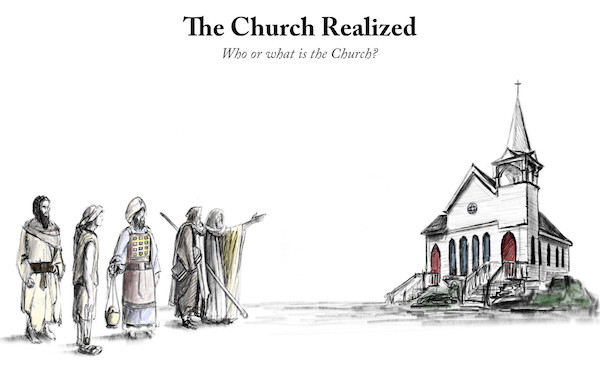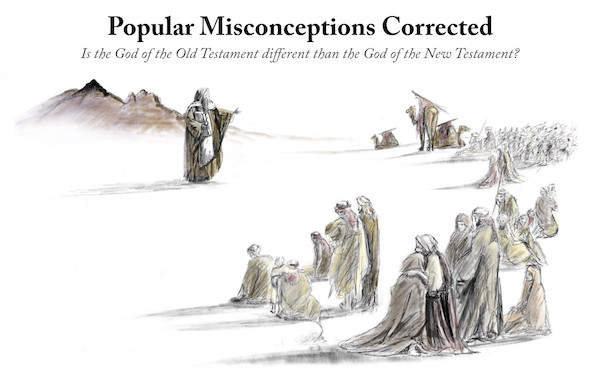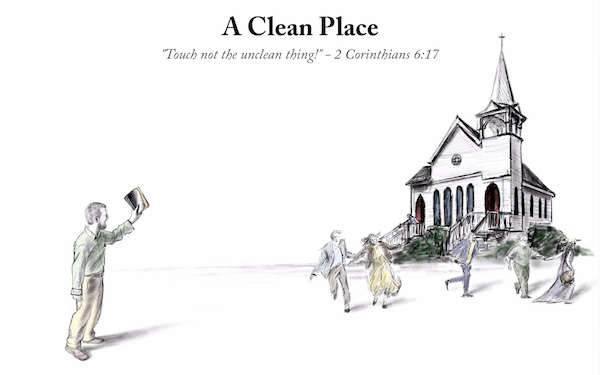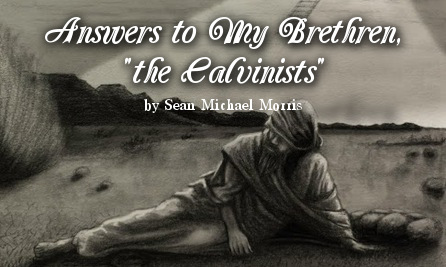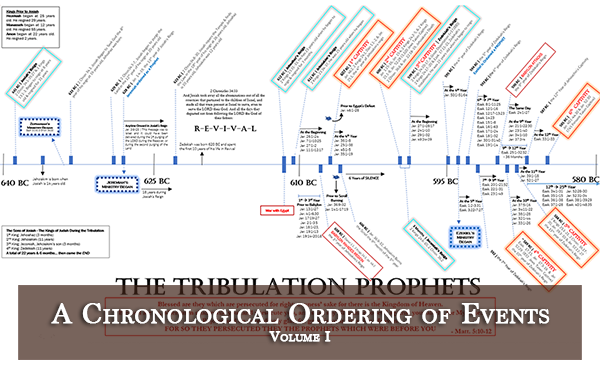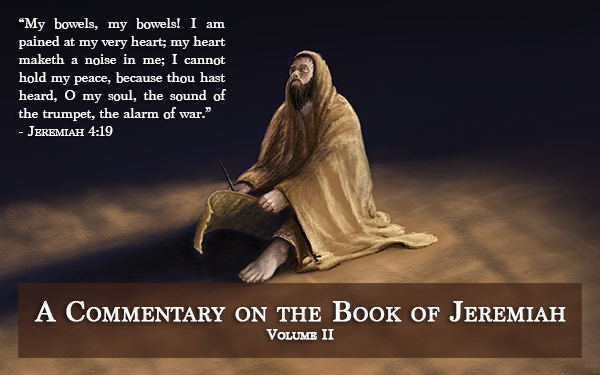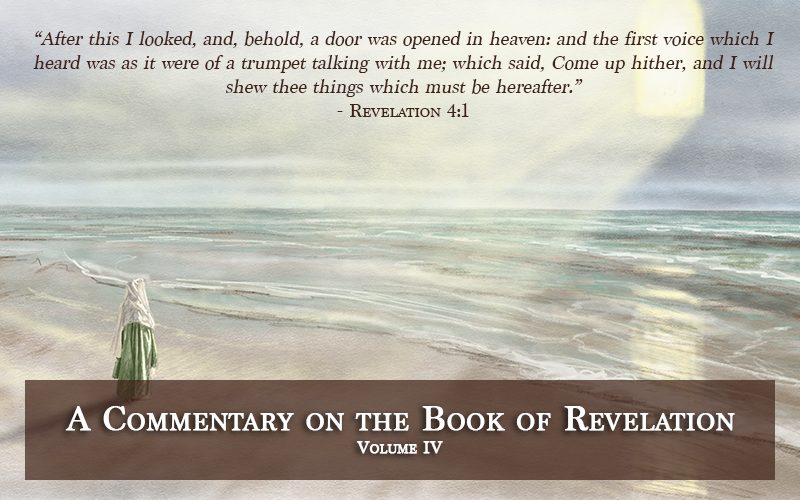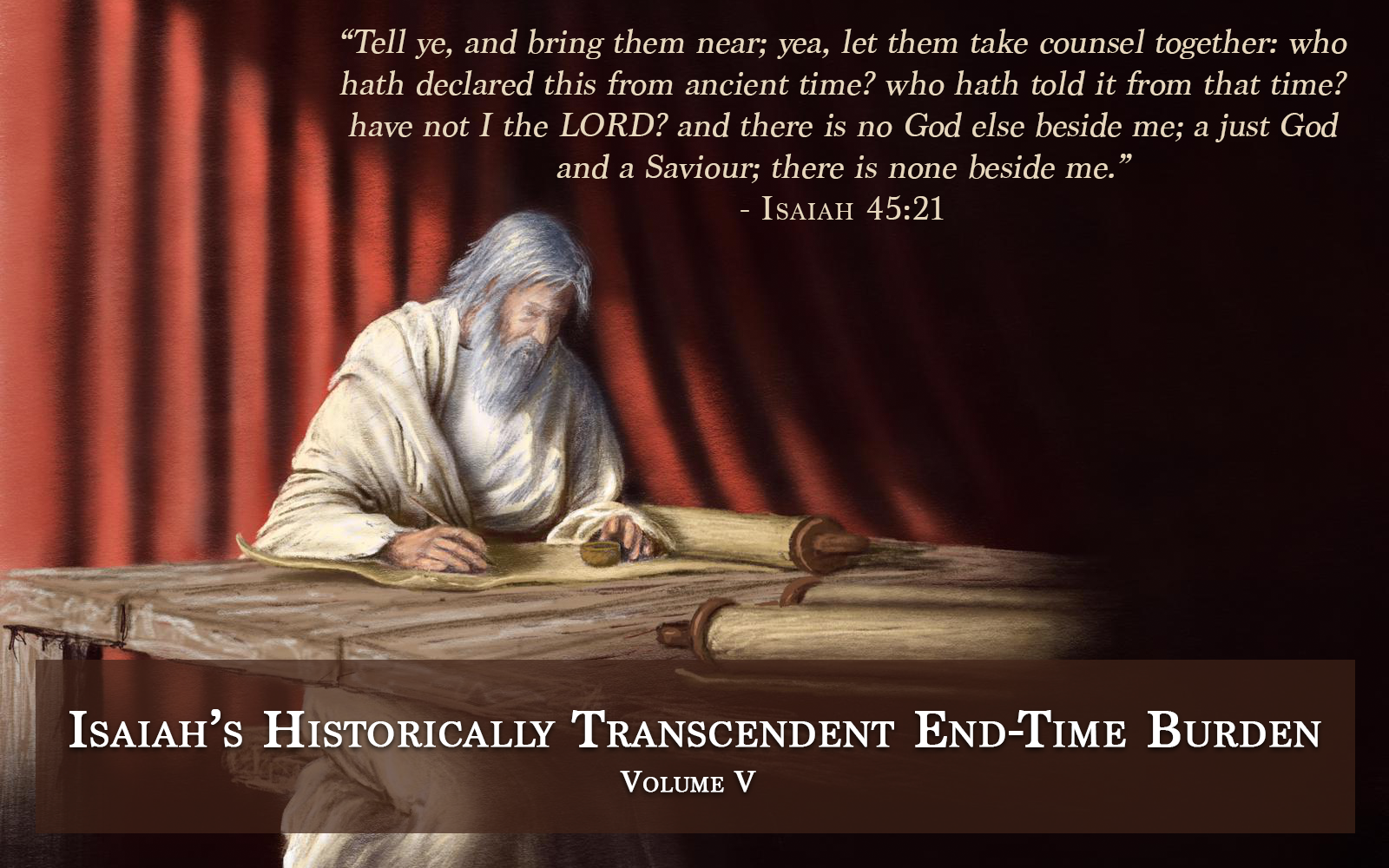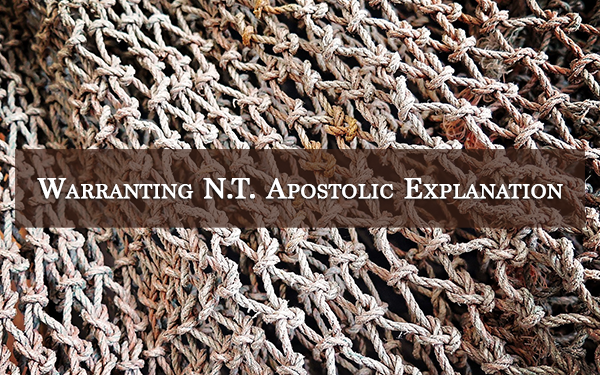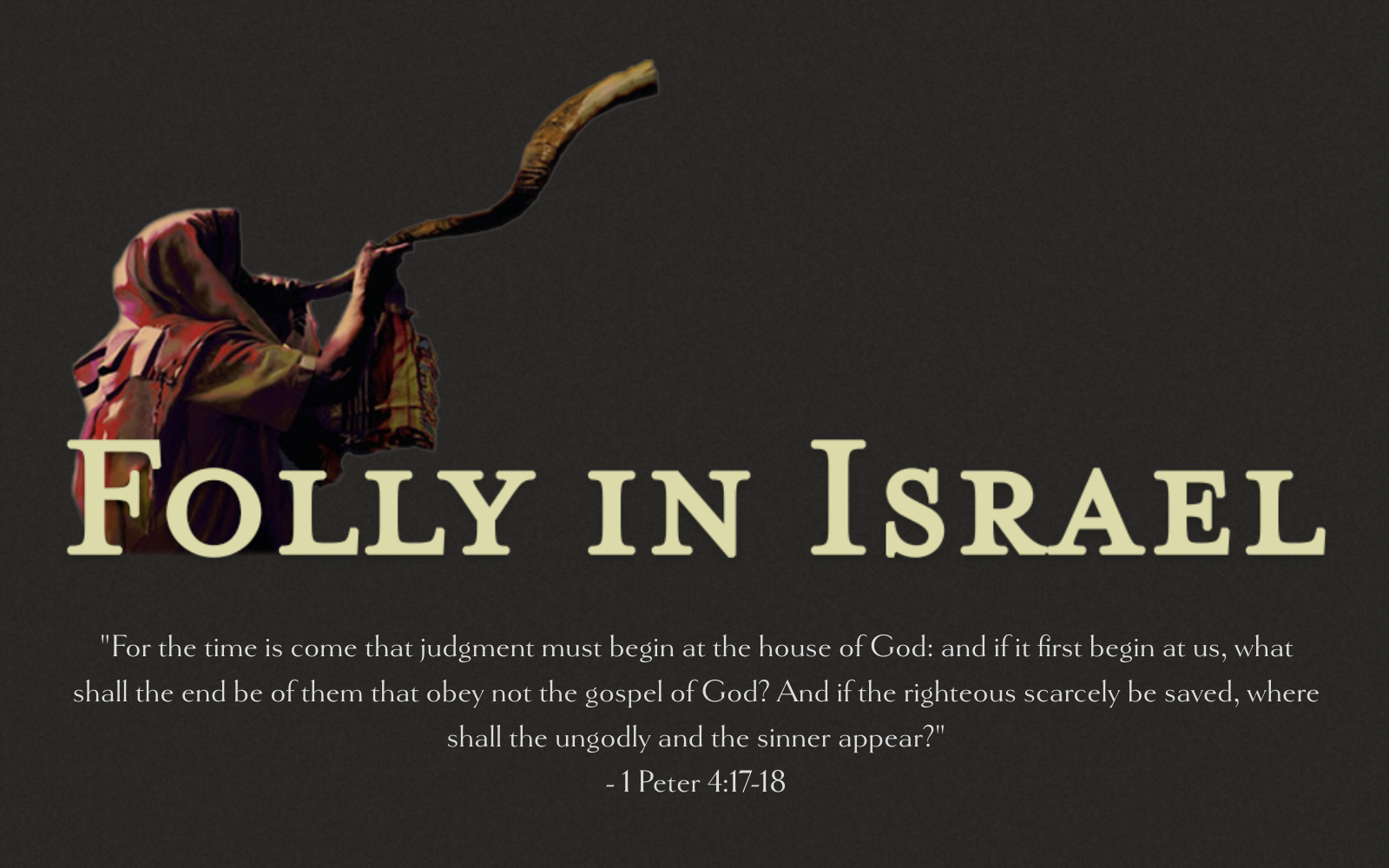Romans 14:4, 10-13, James 2:1-4, 9, 12-13, 4:11-12
In Romans 14:4, 10-13, the word judgment is used. The question appertaining to its use was this, “Who art thou that judgest another man’s servant” (Rom. 14:4)? It is clear that Paul is preaching against judgment in this instance, but why? Paul is speaking against those who judge a judgment which disagrees with God’s judgment on minor matters such as the worship and esteem of Jewish holy days, pure and unclean foods, and the like. Some Christians felt compelled to keep the unclean laws concerning foods and others observed holy days, while others of the opposite decision disagreed, felt free in conscience to dismiss them, and so they did. When two parties judge a matter and clash, then God’s judgment on the matter IS WHAT MATTERS. This is the main thrust of Paul the apostle’s writing in chapter 14.
He is desirous to show the people the proper humiliation before God’s throne, and that God is able to judge the matter soundly, righteously, and finally, and who are we to disagree with it and make our own, false, corrupt judgments instead? Can man compete with the competence of God? Some believed these doctrines were a matter of standing or falling before God, but Paul preaches against their false judgment and says, “who art thou,” in the sense to say, “who art thou to disagree with God in your own corrupt judgment?” Men bent by their cultural ideologies were incited to make minors into majors, because for them, they were inescapable mentalities to be dealt with daily. Self oft intoxicates judgment and robs the accuracy and precision of spiritual sobriety (Rom. 12:3). Those who are of the audience of Paul’s confrontational question and rebuke are those who believe one will fall for such deeds which God judges to be liberty. Paul says, “God is able to make him stand” (Rom. 14:4).
These people are incorrectly judging their brethren if they disagree with the judgment of God. God judges that there IS liberty to practice either side of the disagreeing convictions and still be right with God. These men disagree with God and falsely condemn men for their convictions, but they are condemning God for not condemning men and puffing at the “Judgment Seat of Christ” (Rom. 14:10). To these people God says, “But why dost thou judge thy brother? Or why dost thou set at nought thy brother? For we shall all stand before the judgment seat of Christ” (Rom. 14:10). Paul pleads with the proud, citing the ground zero plane on which all men will finally stand: “The Judgment Seat of Christ.” At this judgment seat we will bow to God’s judgment (Rom. 14:11) and give an account of our deeds and false judgments (Rom. 14:12), so who are we, or, how proud are we, if we disagree with what God says there is liberty to do concerning the ceremonial laws of the OT and matters of conscience? This is what judgment Paul is forbidding: judgment which disagrees with God’s judgment on a matter - judgment that is therefore corrupt, sinful, and in error. Thus I have titled this section on judgment, “Sin & Error in Judgment.”
He is desirous to show the people the proper humiliation before God’s throne, and that God is able to judge the matter soundly, righteously, and finally, and who are we to disagree with it and make our own, false, corrupt judgments instead? Can man compete with the competence of God? Some believed these doctrines were a matter of standing or falling before God, but Paul preaches against their false judgment and says, “who art thou,” in the sense to say, “who art thou to disagree with God in your own corrupt judgment?” Men bent by their cultural ideologies were incited to make minors into majors, because for them, they were inescapable mentalities to be dealt with daily. Self oft intoxicates judgment and robs the accuracy and precision of spiritual sobriety (Rom. 12:3). Those who are of the audience of Paul’s confrontational question and rebuke are those who believe one will fall for such deeds which God judges to be liberty. Paul says, “God is able to make him stand” (Rom. 14:4).
These people are incorrectly judging their brethren if they disagree with the judgment of God. God judges that there IS liberty to practice either side of the disagreeing convictions and still be right with God. These men disagree with God and falsely condemn men for their convictions, but they are condemning God for not condemning men and puffing at the “Judgment Seat of Christ” (Rom. 14:10). To these people God says, “But why dost thou judge thy brother? Or why dost thou set at nought thy brother? For we shall all stand before the judgment seat of Christ” (Rom. 14:10). Paul pleads with the proud, citing the ground zero plane on which all men will finally stand: “The Judgment Seat of Christ.” At this judgment seat we will bow to God’s judgment (Rom. 14:11) and give an account of our deeds and false judgments (Rom. 14:12), so who are we, or, how proud are we, if we disagree with what God says there is liberty to do concerning the ceremonial laws of the OT and matters of conscience? This is what judgment Paul is forbidding: judgment which disagrees with God’s judgment on a matter - judgment that is therefore corrupt, sinful, and in error. Thus I have titled this section on judgment, “Sin & Error in Judgment.”
“Judge this rather” – Rom. 14:13
Judgment is not forbidden in the matter, only incorrect judgment is; therefore Paul says, “judge this rather” in Rom. 14:13. If Paul is saying “judge this rather,” the word and practice of “judgment” itself is not the sin, but what judgment you make is sin. The judgment Paul argues for in the rest of the chapter from verses 13 to 23 is for the behavior of charity to reign as sole dictator in circumstances which differ as matters of freedom and persons of different stability of conscience are present. Paul seeks to detail the deeds of charity which establish “the bond of perfectness” (Col. 3:14). “And let the peace of God rule in your hearts, to which also ye are called in one body; and be ye thankful” (Col. 3:15). If you believe you have liberty to eat unclean foods, don’t do it in front of a person who does not have liberty of conscience, lest they are emboldened to do it against their conscience, and Paul forewarns against this result and your uncharitable stimulation of his sinning against conscience and God. To Paul, this is called putting “a stumbling block or an occasion to fall in his brother’s way” (Rom. 14:13). It is serious. In this way he teaches not to destroy the brethren who are weak (Rom. 14:15), no matter if you have liberty of conscience to eat unclean things. Charity holds as preeminent each other’s spiritual safety through the maintenance of a pure conscience before God. God’s judgment on this matter eradicates occasion for destruction and establishes edification (Rom. 14:19), peace (Rom. 14:19), and the avoidance of offense (Rom. 14:20), thus faith is preserved in both parties rather than one being possibly destroyed.
The judgment which is spoken of in James 2:1-4, 9, 12-13, 4:11-12 is in the same sense as Romans 14; only, it is on a different matter of judgment which the brethren are erring in making, and or, disagreeing in. A twin circumstance of rising sin requires the same humiliating scenes of God’s majestic finality in judgment on all matters of faith and practice.
There is a judgment of brethren being made that is sinful and incorrect, in need of correction and address by the apostle James. In James, what is their error in judgment which disagrees with God’s judgment and law? They are having “respect of persons” toward rich men to the abuse and mistreatment of poor men in the Church (James 2:1-4). Those who commit such error in judgment are therefore said to “become judges of evil thoughts” because God favors the poor rather than the rich. Even the wicked favor the rich! Should not the spiritually poor favor the physically poor? These judges are not walking in charity (James 2:8) or wisdom. Christ – “The Great Equalizer of men”- He is the level plane for all rich and poor men, and these men have lost themselves in the proud luster of perishable riches and colorful luxury, and so they have disagreed with God. If they disagreed with the judgment of God then the word of God, or “the law” (Jas. 2:9), would expose this. Therefore they are said to be transgressors of the law (Rom. 2:9-11). Such persons that do this need to be humbled like the Romans 14 persons who erred; therefore Paul seeks to exalt the finality of God’s judgment – “So speak ye, and so do, as they that shall be judged by the law of liberty” (Jas. 2:12).
The perverse favor that these men give to the rich is said to be alongside weighty sins like adultery and murder (Jas. 2:11). The nature of the sin is a lack of mercy toward the poor, therefore a lack of love. It is a damnable sin. Mercy is dangerously important to God, and vitally real in a regenerate, righteous man of God. God says, “Blessed are the merciful: for they shall obtain mercy” (Matt. 5:7). There is a burden of blessing and a burden of woe, and to the rich God says, “woe unto you that are rich! For ye have received your consolation” (Lk. 6:24). And again, “Go to now, ye rich men, weep and howl for the miseries that shall come upon you” (Jas. 5:1). Mercy is an inseparable chunk of the tree trunk – charity - and without it, all branches of work, sacrifice, knowledge, revelation, or any Christian experience, “profiteth nothing” (1 Cor. 13:3). Can you see that these men are dislocated from the humiliation of the Divine Judgment that will transpire in another world? “Naked came I out of my mother’s womb, and naked shall I return thither”- thus the soul flies into eternity stripped from all worldly gain or honorable enterprise (Job 1:21).
A soul dislocated from God’s eternal judgment is emboldened to rely on his own deceitful rationale. If a man wanders into the realm of his own heart’s wisdom, he will be bound again in the death grip of depravity. If you will do what you think is right, or righteous, then you are dead, and living for the second death, and because you are dislocated from eternity, your sight is blindness. “There is a way which seemeth right unto man, but the end thereof are the ways of death” (Prov. 14:12). James seeks to terrify these judgers of the guilt and criminal danger at hand, which is their lack of charity in defiance of “the royal law” (Jas. 2:8). He seeks to show the damning nature of God’s judgment against such corrupt judgments of transgression in mercilessness; thus James says, “He shall have judgment without mercy, that hath shewed no mercy; and mercy rejoiceth against judgment” (Jas. 2:13). This judgment and other evil eyes like it are said to be “evil” (Jas. 4:11), and “he that speaketh evil of his brother, and judgeth his brother” in this way “speaketh evil of the law, and judgeth the law” (Jas. 4:11). Why? They are disagreeing with the judgment of the law like as in Romans 14:13. Therefore it is that they disagree with God’s judgment and are exalting themselves against God, judging God and His law to be wrong. So James warns, “There is one Lawgiver, Who is able to save and to destroy: who art thou that judgest another” (James 4:12). Those who judge another against God’s judgment need to be stripped naked before the “One LAWGIVER,” in Whose hands is all salvation or destruction! Don’t judge against the Judge and thus judge the Judge; “Agree with thine adversary quickly, whiles thou art in the way with him; lest at any time the adversary deliver thee to the Judge, and the Judge deliver thee to the officer, and thou be cast into prison” (Matt. 5:25).
Men and women often quote this verse in James 2:13, “He shall have judgment without mercy, that hath shewed no mercy; and mercy rejoiceth against judgment.” Sadly, they use it to advocate an unbiblical mercy toward those who God demands no mercy toward, in the sense of fulfilling the judgment commanded in 1 Corinthians 5 (the whole chapter) and 2 Corinthians 6:14-7:1. Don’t be mistaken; it is not that we are not forgiving them from our heart. It is not that we are cold and merciless in the sense that we have ceased to wish, pray, love, and hope for their salvation. Mercy in judgment is NOT a failure to excommunicate those who God is demanding to be judged in this way (1 Cor. 5:9-13). It is NOT a continuance of company with those who God is damning - “with such an one no not to eat” (1 Cor. 5:11). It is NOT judging a man a righteous companion when he is in unrepentant sin: such a man (after the due process of judgment) should be judged to be as “an heathen man and a publican” (Matt. 18:15-17).
You see, we must always be merciful in our hearts so as to forgive (Matt. 6:14-15) and love every man, but true love afflicts (2 Cor. 2:6) in this way of mercilessness, in the sense of uncompromising, afflicting excommunication. To execute upon them this due recompense for sins is called unforgiveness in a different sense than the forgiveness taught in Matthew 6:14-15. One sense is a forgetting or remembering of sins committed against you personally, but the other is in regard to the offense done against the Person of Christ. Paul calls it forgiveness (2 Cor. 2:10) because it is the act of forgetting or a remembering sins committed against Christ – and if they are remembered, it is to hold the individual to the penalty of excommunication. When Paul judged to excommunicate a man he says he “judged” (1 Cor. 5:3), and when he received an excommunicated man back in the church he called it forgiveness (2 Cor. 2:10). In this peculiar sense of the meaning, the Church is not always supposed to exercise forgiveness toward all men and women (see 2 Cor. 2:7) unless proper repentance is attained (2 Cor. 7:10-11). If any man leaves off forgiveness in the other sense, he will have a personal grudge and hatred – and this is severely condemned (Matt. 6:14-15, Jas. 5:9). This kind of forgiveness is never to be left off because it is personal, but when God takes personally some man’s sins which he has committed against Him, when God says He is jealous, angry, and holding in memory a man’s sins so as to condemn him, this is a time to exercise the merciless judgment of God, which, in 1 Corinthians 5, is called judgment. It is an execution of God’s judgment in reality NOW, a holding of men to it, and we are mere ambassadors doing it in His majestic name. Mercy in judgment, as it is written in James 2:13, is the sense of mercy and love toward the poor Christians that James wrote to, and this mercy rewards merciful judgment between you and God. In contrast to this mercy, to have mercy and forgiveness which compromises and corrupts other forms of righteous judgment formerly addressed - this is fearful sin, circumstantially dangerous enough to damn the whole community of the saints! This ought never to be done! Let this verse give correction and warning concerning the balance of true judgment, whatever the sense: “He that justifieth the wicked, and he that condemneth the just, even they both are abomination to the LORD” (Prov. 17:15).
The judgment which is spoken of in James 2:1-4, 9, 12-13, 4:11-12 is in the same sense as Romans 14; only, it is on a different matter of judgment which the brethren are erring in making, and or, disagreeing in. A twin circumstance of rising sin requires the same humiliating scenes of God’s majestic finality in judgment on all matters of faith and practice.
There is a judgment of brethren being made that is sinful and incorrect, in need of correction and address by the apostle James. In James, what is their error in judgment which disagrees with God’s judgment and law? They are having “respect of persons” toward rich men to the abuse and mistreatment of poor men in the Church (James 2:1-4). Those who commit such error in judgment are therefore said to “become judges of evil thoughts” because God favors the poor rather than the rich. Even the wicked favor the rich! Should not the spiritually poor favor the physically poor? These judges are not walking in charity (James 2:8) or wisdom. Christ – “The Great Equalizer of men”- He is the level plane for all rich and poor men, and these men have lost themselves in the proud luster of perishable riches and colorful luxury, and so they have disagreed with God. If they disagreed with the judgment of God then the word of God, or “the law” (Jas. 2:9), would expose this. Therefore they are said to be transgressors of the law (Rom. 2:9-11). Such persons that do this need to be humbled like the Romans 14 persons who erred; therefore Paul seeks to exalt the finality of God’s judgment – “So speak ye, and so do, as they that shall be judged by the law of liberty” (Jas. 2:12).
The perverse favor that these men give to the rich is said to be alongside weighty sins like adultery and murder (Jas. 2:11). The nature of the sin is a lack of mercy toward the poor, therefore a lack of love. It is a damnable sin. Mercy is dangerously important to God, and vitally real in a regenerate, righteous man of God. God says, “Blessed are the merciful: for they shall obtain mercy” (Matt. 5:7). There is a burden of blessing and a burden of woe, and to the rich God says, “woe unto you that are rich! For ye have received your consolation” (Lk. 6:24). And again, “Go to now, ye rich men, weep and howl for the miseries that shall come upon you” (Jas. 5:1). Mercy is an inseparable chunk of the tree trunk – charity - and without it, all branches of work, sacrifice, knowledge, revelation, or any Christian experience, “profiteth nothing” (1 Cor. 13:3). Can you see that these men are dislocated from the humiliation of the Divine Judgment that will transpire in another world? “Naked came I out of my mother’s womb, and naked shall I return thither”- thus the soul flies into eternity stripped from all worldly gain or honorable enterprise (Job 1:21).
A soul dislocated from God’s eternal judgment is emboldened to rely on his own deceitful rationale. If a man wanders into the realm of his own heart’s wisdom, he will be bound again in the death grip of depravity. If you will do what you think is right, or righteous, then you are dead, and living for the second death, and because you are dislocated from eternity, your sight is blindness. “There is a way which seemeth right unto man, but the end thereof are the ways of death” (Prov. 14:12). James seeks to terrify these judgers of the guilt and criminal danger at hand, which is their lack of charity in defiance of “the royal law” (Jas. 2:8). He seeks to show the damning nature of God’s judgment against such corrupt judgments of transgression in mercilessness; thus James says, “He shall have judgment without mercy, that hath shewed no mercy; and mercy rejoiceth against judgment” (Jas. 2:13). This judgment and other evil eyes like it are said to be “evil” (Jas. 4:11), and “he that speaketh evil of his brother, and judgeth his brother” in this way “speaketh evil of the law, and judgeth the law” (Jas. 4:11). Why? They are disagreeing with the judgment of the law like as in Romans 14:13. Therefore it is that they disagree with God’s judgment and are exalting themselves against God, judging God and His law to be wrong. So James warns, “There is one Lawgiver, Who is able to save and to destroy: who art thou that judgest another” (James 4:12). Those who judge another against God’s judgment need to be stripped naked before the “One LAWGIVER,” in Whose hands is all salvation or destruction! Don’t judge against the Judge and thus judge the Judge; “Agree with thine adversary quickly, whiles thou art in the way with him; lest at any time the adversary deliver thee to the Judge, and the Judge deliver thee to the officer, and thou be cast into prison” (Matt. 5:25).
Men and women often quote this verse in James 2:13, “He shall have judgment without mercy, that hath shewed no mercy; and mercy rejoiceth against judgment.” Sadly, they use it to advocate an unbiblical mercy toward those who God demands no mercy toward, in the sense of fulfilling the judgment commanded in 1 Corinthians 5 (the whole chapter) and 2 Corinthians 6:14-7:1. Don’t be mistaken; it is not that we are not forgiving them from our heart. It is not that we are cold and merciless in the sense that we have ceased to wish, pray, love, and hope for their salvation. Mercy in judgment is NOT a failure to excommunicate those who God is demanding to be judged in this way (1 Cor. 5:9-13). It is NOT a continuance of company with those who God is damning - “with such an one no not to eat” (1 Cor. 5:11). It is NOT judging a man a righteous companion when he is in unrepentant sin: such a man (after the due process of judgment) should be judged to be as “an heathen man and a publican” (Matt. 18:15-17).
You see, we must always be merciful in our hearts so as to forgive (Matt. 6:14-15) and love every man, but true love afflicts (2 Cor. 2:6) in this way of mercilessness, in the sense of uncompromising, afflicting excommunication. To execute upon them this due recompense for sins is called unforgiveness in a different sense than the forgiveness taught in Matthew 6:14-15. One sense is a forgetting or remembering of sins committed against you personally, but the other is in regard to the offense done against the Person of Christ. Paul calls it forgiveness (2 Cor. 2:10) because it is the act of forgetting or a remembering sins committed against Christ – and if they are remembered, it is to hold the individual to the penalty of excommunication. When Paul judged to excommunicate a man he says he “judged” (1 Cor. 5:3), and when he received an excommunicated man back in the church he called it forgiveness (2 Cor. 2:10). In this peculiar sense of the meaning, the Church is not always supposed to exercise forgiveness toward all men and women (see 2 Cor. 2:7) unless proper repentance is attained (2 Cor. 7:10-11). If any man leaves off forgiveness in the other sense, he will have a personal grudge and hatred – and this is severely condemned (Matt. 6:14-15, Jas. 5:9). This kind of forgiveness is never to be left off because it is personal, but when God takes personally some man’s sins which he has committed against Him, when God says He is jealous, angry, and holding in memory a man’s sins so as to condemn him, this is a time to exercise the merciless judgment of God, which, in 1 Corinthians 5, is called judgment. It is an execution of God’s judgment in reality NOW, a holding of men to it, and we are mere ambassadors doing it in His majestic name. Mercy in judgment, as it is written in James 2:13, is the sense of mercy and love toward the poor Christians that James wrote to, and this mercy rewards merciful judgment between you and God. In contrast to this mercy, to have mercy and forgiveness which compromises and corrupts other forms of righteous judgment formerly addressed - this is fearful sin, circumstantially dangerous enough to damn the whole community of the saints! This ought never to be done! Let this verse give correction and warning concerning the balance of true judgment, whatever the sense: “He that justifieth the wicked, and he that condemneth the just, even they both are abomination to the LORD” (Prov. 17:15).









